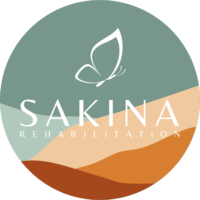Treatment
We offer a comprehensive range of services, including detoxification guidance, individual and group sessions, psychoeducation on addiction and mental health, Cognitive Behavioral Therapy (CBT), relapse prevention strategies, family support, and holistic approaches such as mindfulness and physical fitness. Our aftercare planning and support systems ensure continuity of care. Additionally, we provide customized programs to meet individual needs, including dual-diagnosis support for co-occurring mental health conditions such as addiction and depression. Our culturally sensitive approach is designed to serve diverse populations with respect and understanding.
Evidence-Based Psychological Treatment Methods
Cognitive Therapy (CBT)
Clients identify and change negative thought patterns and behaviors, forming the cornerstone of many recovery programs.
Behavioral Therapies
Therapy that help individuals change their behaviors complementing other therapeutic approaches.
Relapse Prevention
Techniques and strategies designed to help recognize and avoid triggers and high-risk situations, ensuring long-term recovery.
Motivational Interviewing (MI)
Finding the motivation to make positive changes, enhancing commitment to recovery.
Acceptance and Commitment Therapy (ACT)
Accept thoughts and feelings and commit to making changes aligned with values, fostering a healthier mindset.
Psychodynamic Therapy
Explore unconscious thoughts and feelings that influence behavior, aiming to uncover and resolve deep-seated emotional conflicts.
Art
Creative expression and emotional healing through various forms of art workshops.
Hypnotherapy
Uses guided relaxation and focused attention to achieve behavioral change and stress reduction.
Group Therapy Sessions
Fosters a supportive environment where clients can share experiences, gain insights, and build interpersonal skills.
12-Step Program
Peer support groups based on 12 principles and 12 steps providing a structured and communal approach to recovery.
Family Therapy
Involving family members in the treatment process to improve communication and support the individual’s recovery, which is essential for creating a supportive home environment.
SMART Recovery
Science-based program focusing on self-empowerment and self-reliance, using techniques from cognitive- behavioral therapy and motivational interviewing.
Holistic Approaches
Pleasant Farming Activities
Connecting with Nature
PT Group Fitness
Swimming
Yoga
Meditation
Mindfulness Practice
Breath Work
Art Workshops
Playing Instruments
Nutritional Counseling
Glossary of Terms
- Detoxification (Detox): The process of clearing substances from the body, often with medical or psychological support.
- Cognitive Behavioral Therapy (CBT): A form of therapy that focuses on changing negative thought patterns and behaviors.
- Relapse Prevention: Techniques aimed at helping individuals avoid returning to substance use.
- Dual Diagnosis: The coexistence of a mental health disorder and a substance use disorder, requiring specialized treatment.
- Psychoeducation: Education about mental health and addiction to empower individuals with knowledge and coping skills.
- Holistic Therapy: Treatment approaches that consider the whole person, including physical, emotional, and spiritual wellbeing.

